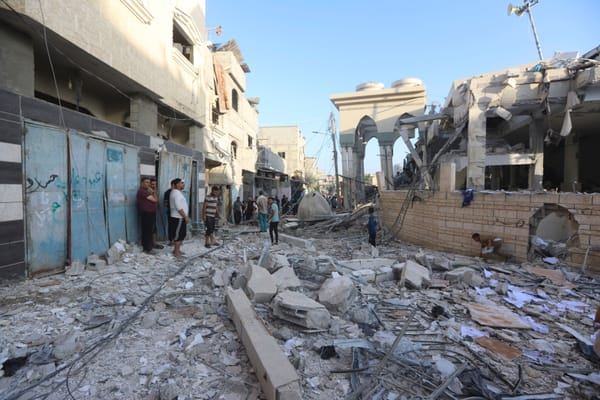There should be no taboos in examining the current Gaza war. All the proposed solutions—two states, a single democratic state for both Arabs and Jews, a federative model comprising semi-autonomous Jewish and Arab states—seem equally impossible today. Yet the alternatives to these solutions range from bleak to catastrophic: a resumption of the status quo ante, only with Gaza under tighter Israeli control, until the next horrifying burst of violence; or a regional conflagration pitting the United States and its allies against Iranian proxies. A solution is thus both impossible and necessary. A situation like this demands, first and foremost, analytic courage.
We shouldn’t, for one thing, be afraid to raise a question avoided by those who emphasize the distinction between Hamas and the Palestinian majority: What if the majority of Palestinians, even if they don’t actively support Hamas, nonetheless admire it as the only organization with the gumption not just to complain about the Jewish state—but to openly attack it?
“We … shouldn’t sidestep the brutality of Muslim against Muslim.”
We also shouldn’t sidestep the brutality of Muslim against Muslim, Arab against Arab. In what is known as Black September in 1970, Jordan’s King Hussein killed thousands of Palestinians and expelled tens of thousands more. In 1991, Kuwait expelled 200,000 Palestinians. Syrian strongman Bashar al-Assad has killed and tortured thousands of Palestinians in the past decade, leaving aside the hundreds of thousands of Syrians killed by his regime during the (still-ongoing) Syrian Civil War. Between March 2022 and June 2023, Saudi border guards allegedly killed hundreds of Ethiopian migrants attempting to cross the border from Yemen into the oil-rich kingdom. Where was the much-vaunted solidarity among Muslims in these cases? Why don’t the crimes of Riyadh and Damascus trigger mass demonstrations in the Arab world?
